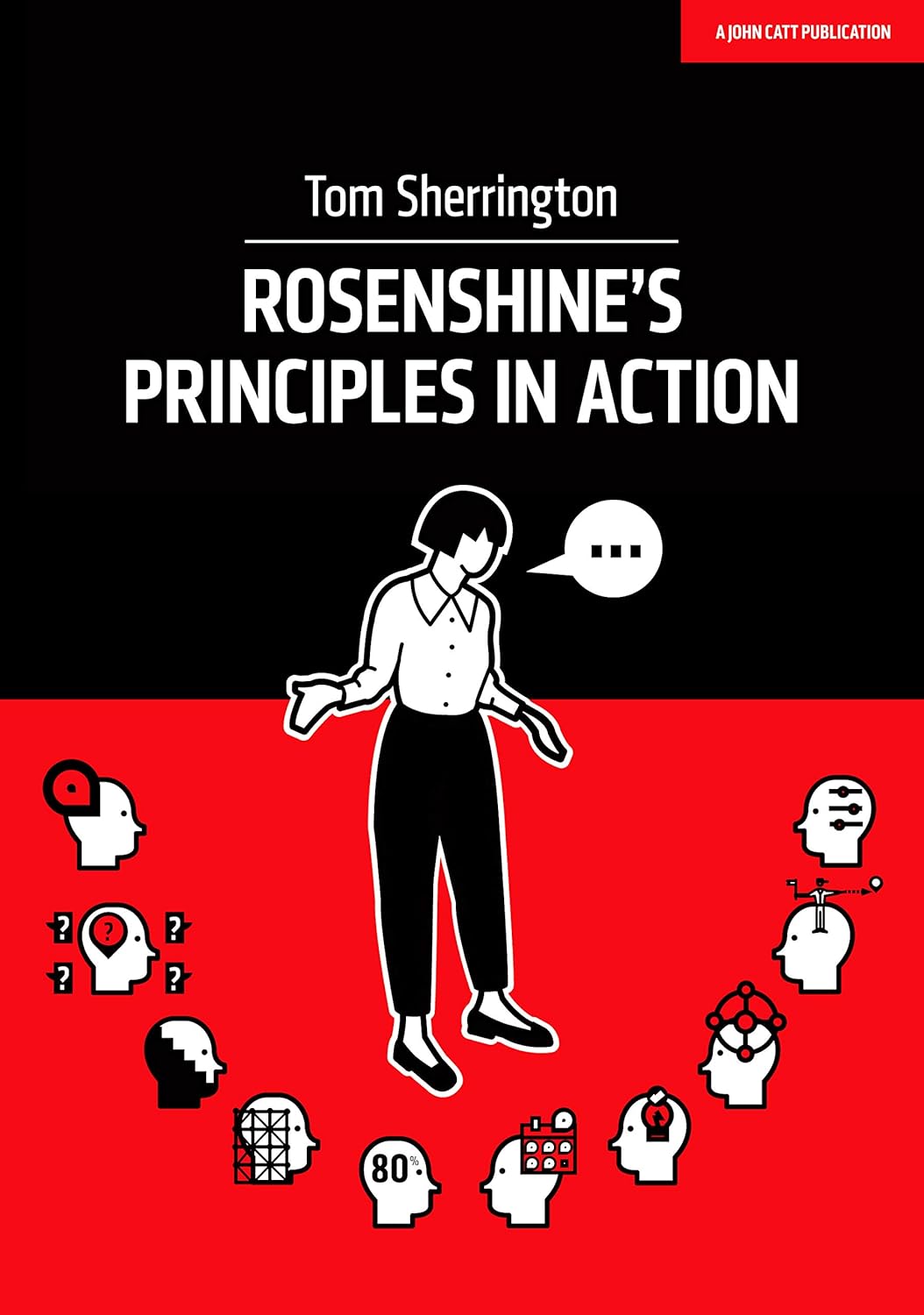About this deal
For recall to become automatic, Rosenshine writes that sometimes we need to overlearn. ‘Overlearn’ is certainly not a pejorative term; rather, overlearning is an important concept for the level of learning required to achieve mastery of some task, skill, the use of concept or to know or understand something with fluency (p. 13). For example, in discussion of the process of gaining mastery at mathematical problem-solving, Rosenshine writes: How relevant these principles are to the language classroom might depend on your stance re: interface or your views towards direct instruction. I’d imagine that from a SLA perspective the principles might oversimplify the language learning process, perhaps reducing it merely to cognition, ignoring (the somewhat non-linear) nature of interlanguage development and discounting a large body of more humanistic focused research. Rosenshine’s principles of instruction, divided into Sherrington’s four strands (image by Oliver Caviglioli) In the section on ‘In the classroom’ under the third principle, ‘Ask questions’, Rosenshine includes a set of stems for questions that teachers of literature, social science and science might ask students, based on the research of A. King (p. 15). [4]
Rosenshine suggests that more effective teachers are ‘able to narrate the decisions and choices they make’ – for example, where to begin with a maths problem or how to start an essay. Sherrington writes that thinking aloud by the teacher is important for developing students’ ‘capacity for metacognition and self-regulation by modelling their own thought processes’ (Sherrington, p. 20). After listing the seventeen instructional principles above, Rosenshine outlines his ten principles of instruction (pp. 13-19 and 39). The principles are clearly illustrated and briefly summarised in the poster below, by Oliver Caviglioli:
As our schemata become more fully formed and interconnected, we can explore our knowledge and retrieve it more fluently. How would you define knowledge in this instance? Are you including skill acquisition and applied understanding as forms of knowledge, or are you referring more to facts and information? Sherrington writes that the first principle is important for recalling learning from the previous lesson. Activating relevant prior learning in the working memory is particularly important when teachers wish to introduce new learning. Sherrington suggests that daily review is also important for developing students’ fluency and confidence in a subject. New information typically only becomes stored if we can connect it to knowledge we already have; therefore, prior knowledge significantly influences our capacity to learn. I didn’t read anything in the POI pamphlet that explicitly stated it was focused on acquisition of knowledge. If it did, and if by knowledge we are thinking more about vocab/grammar rules, then declarative knowledge may play a compensatory role for a learner as procedural competency continues to develop, without the suggestion that one necessitates the other.
In the second stage, Rosenshine offers advice on how the principle can be employed in the classroom. Rosenshine’s guidance is supported by observations of the teaching practices of master teachers. He often provides several suggestions for classroom activities related to the principle under discussion. Rosenshine gives the name ‘more effective teachers’ to those teachers whose classrooms made the highest gains in standardised achievement tests (Rosenshine, p. 12). He also refers to more effective teachers as ‘master teachers’. The teaching practices of more effective teachers constitute one of the sources of evidence Rosenshine uses to support his principles. These ideas are usefully summarised by Tom Sherrington in his book, Rosenshine’s Principles in Action. [2] Rosenshine’s principles are supported by a learning model from contemporary cognitive science, which Sherrington summarises as follows (Sherrington, pp. 10-12): Second, explore the implications of each principle at a subject-specific level. The principles and the strands into which Sherrington divides them need to be contextualised for successful implementation and applicability. They ‘have meaning’, Sherrington writes, ‘only in the context of curriculum content’.
By language learning are you referring to some end state (like mastery), learning with an immediate goal/need to communicate, or something else? Rosenshine and Sherrington recommend that teachers provide many worked examples and then leave students to finish problems by themselves. The extent to which students complete tasks by themselves depends how far along they are in the process of mastery over the task or skill in question (Sherrington, p. 21). The extent to which students complete problems by themselves is expressed by Rosenshine in terms of the number of steps in a learning process students are expected to complete by themselves. Providing students with models and worked examples can help them learn to solve problems faster’ (p. 15). In relation to the above learning model, Rosenshine suggests that more effective teachers recognise the need to deal with the limitations of working memory by breaking down concepts and procedures into small steps, and ensure that students have the opportunity to practise each step (Sherrington, p. 15).
 Great Deal
Great Deal 